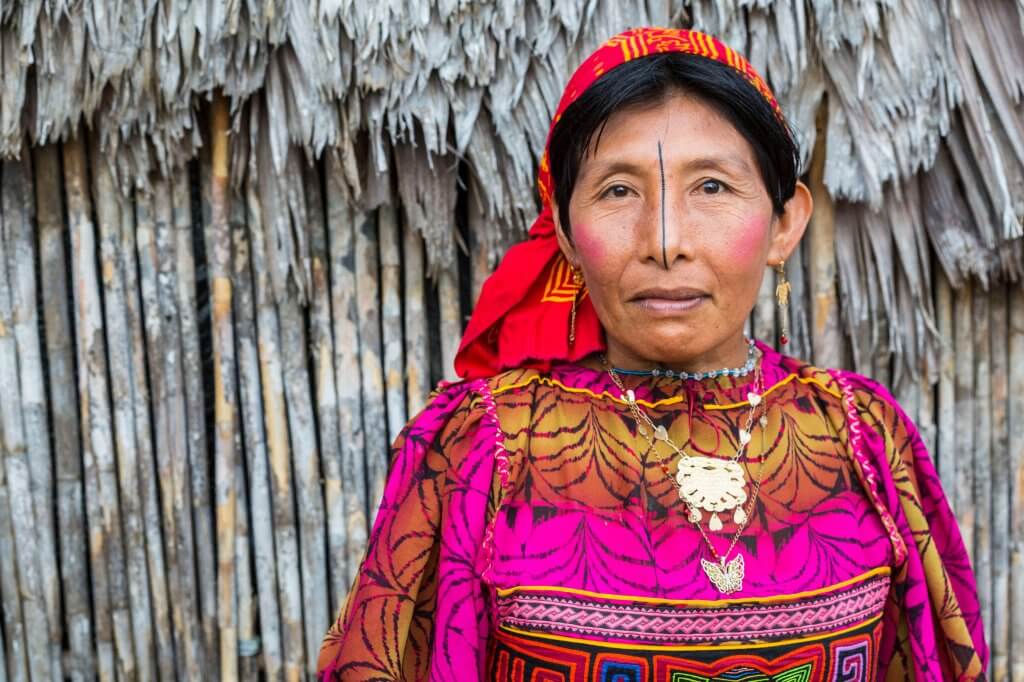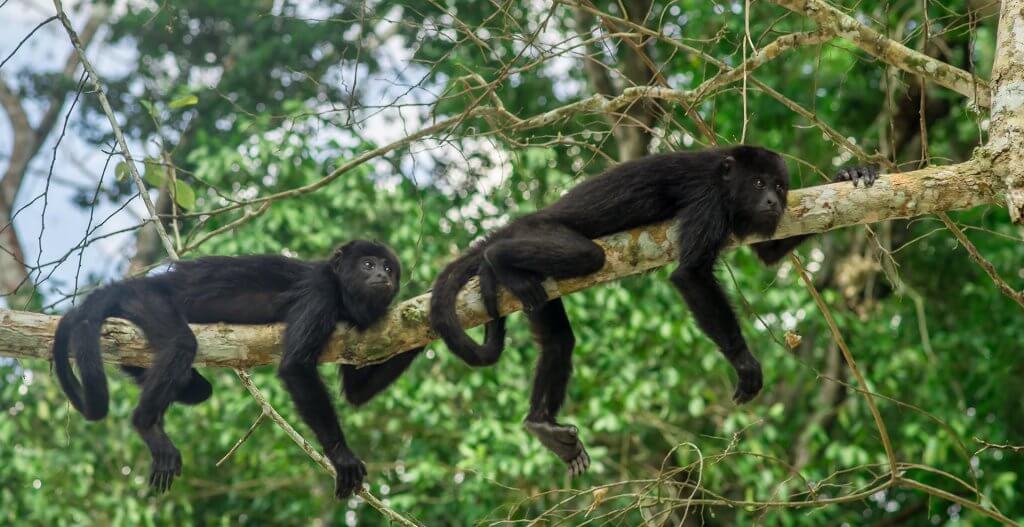Brazilian Beats: Experiences Vibrant Musical Traditions
Brazilian music embodies the heart and soul of the nation, beautifully reflecting its diverse cultural heritage. The various infectious rhythms and vibrant beats celebrate life, community, and the many influences that shape Brazil’s unique identity.
Brazil’s musical landscape spans a wide range of styles, each offering a distinctive expression of Brazilian culture. As you journey through the country, it is possible to open the door to unique immersive cultural experiences and witness first-hand the traditions that shape each region.
Brazilian Music Traditions
Brazil’s music blends Indigenous, African, Portuguese, and immigrant influences into unique and vibrant sounds. The traditions have evolved over centuries, with each region contributing its own distinctive style that helps celebrate the country’s history, people, and landscapes.
Among the many iconic musical expressions that define Brazil and captivate visitors, samba and capoeira stand out as quintessential representations of the nation’s cultural identity.
START PLANNING LUXURY BRAZIL TOUR
Brazilian Samba
Samba music is a cornerstone of Brazilian culture, with roots that trace back to the 19th century.
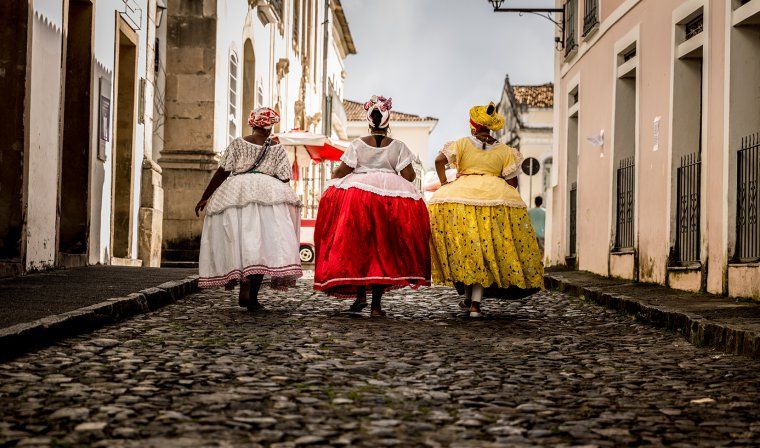
Bahia is considered the birthplace of samba in Brazil, particularly samba de roda, which originated as a form of communal dance and expression among enslaved Africans. This traditional style, characterized by its circle formation and call-and-response singing, remains an important cultural practice in Bahia.
Over time, samba blended with European musical elements and in the early 20th century, it began its migration to Rio de Janeiro where its rhythms mixed with local folk styles and it flourished as a cultural phenomenon.
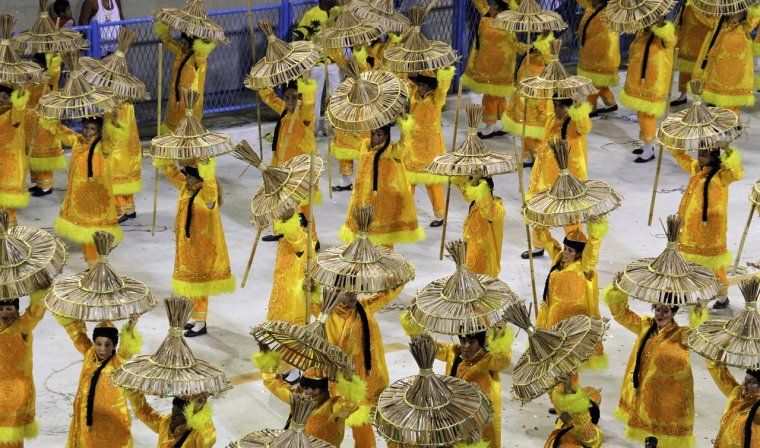
The genre gained widespread popularity following the recordings of artists like Donga and Pixinguinha as Samba’s colorful rhythms, combined with its storytelling lyrics and use of traditional percussion instruments, started to resonate deeply with Brazilians from all walks of life.
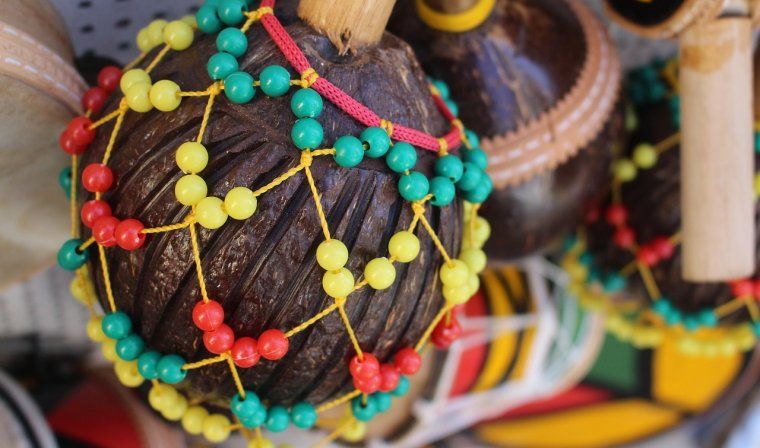
Samba is best characterized by lively beats and energetic rhythms. The music, which is typically performed with a variety of percussion instruments like the surdo, olodum, pandeiro, cavaquinho, and tamborim, often tells stories of everyday life, love, struggle, and celebration.
Samba dance is fluid with rhythmic movements like quick footwork, hip isolations, and the signature “samba bounce.” Samba dance can be performed solo, in pairs, or as part of a group, and often incorporates improvisation, making it dynamic and personal, with individual expression at its core.
START PLANNING LUXURY BRAZIL TOUR
Brazilian Capoeira
Capoeira, a blend of music, dance, and martial arts, also originated among enslaved Africans in Bahia and has roots dating back to the 16th century.
At the heart of capoeira, there are fluid, acrobatic movements and rhythmic gameplay. Typically, two people engage in a playful yet skilled exchange, using kicks, spins, and dodges.
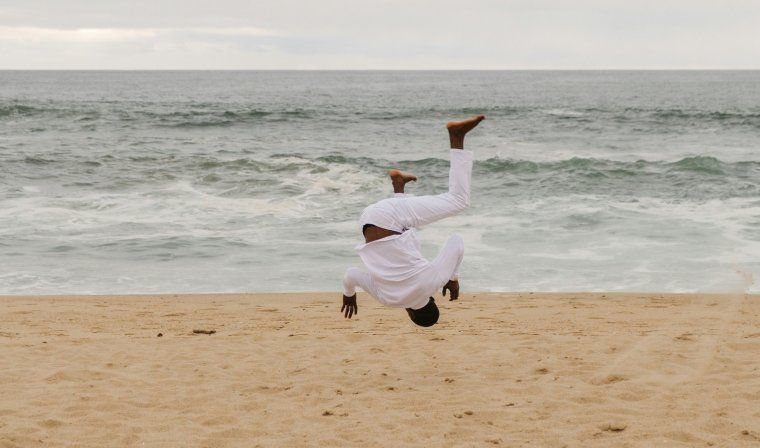
Unlike traditional martial arts, capoeira focuses on fluidity, agility, and improvisation, with dancers often using their bodies to express creativity and communicate through movement. The game is performed to live music with instruments like the berimbau, pandeiro, atabaque, and agogô, which set the rhythm and energy of the session.
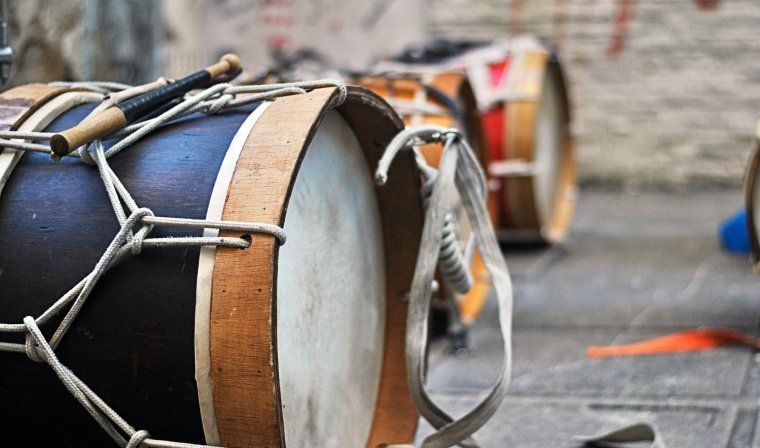
Over the years, capoeira has grown into a celebrated cultural tradition, practiced around the world. The dance, music, and martial arts elements of capoeira continue to captivate audiences, offering a unique and powerful expression of Brazilian identity, community, and heritage.
Experience Brazil’s Musical Traditions
Different musical traditions are alive throughout Brazil and it is possible to immerse yourself in the nation’s diverse rhythms and styles as you journey through this captivating country.
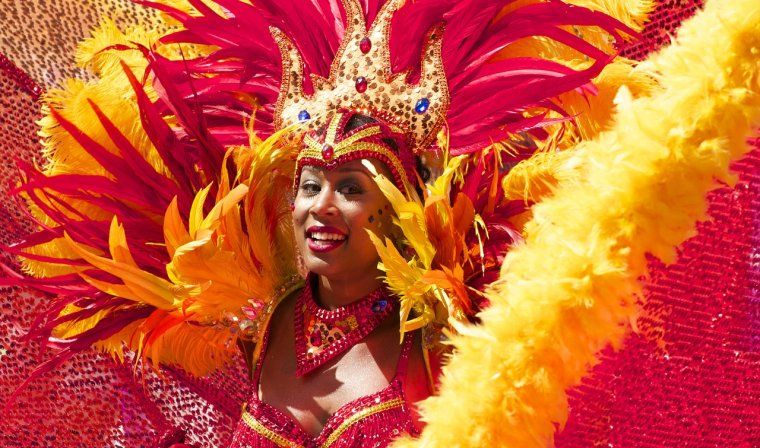
Experience Samba In Rio de Janeiro
Rio de Janeiro is considered the heart of samba, especially during Carnival.
After the genre gained widespread popularity in the early 20th century, following the recordings of artists like Donga and Pixinguinha, Samba found its place in the famous Carnival celebrations. Here, it found its most iconic expression.
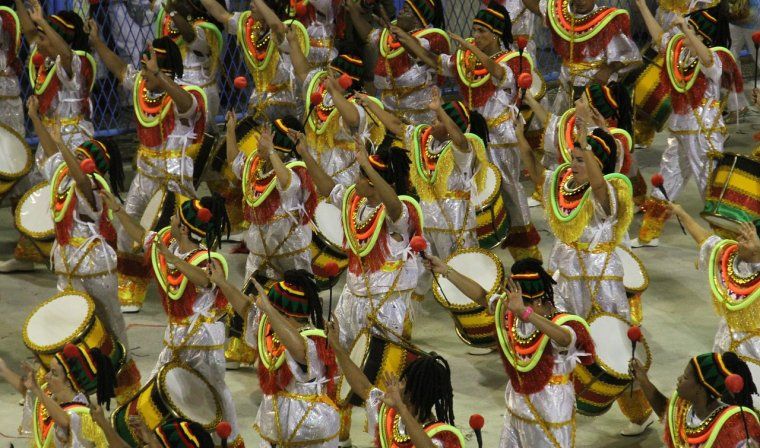
Samba schools were established to perform elaborate parades featuring intricate costumes, floats, and music. These schools became central to Carnival celebrations, elevating samba to a national stage and solidifying its place in Brazil’s cultural fabric.
Every year, the city comes alive with samba music and dance as preparations for the grand parade at the Sambadrome begin. Many of the schools will hold open rehearsals so visitors can enjoy a sneak peak at the upcoming performances and dazzling costumes.
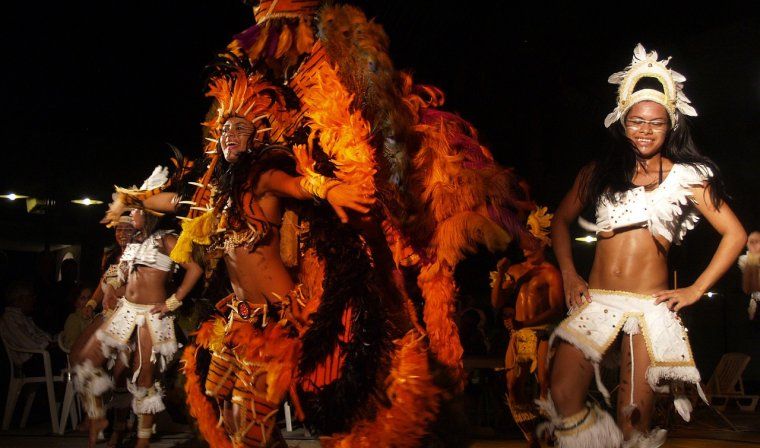
For a truly immersive samba experience in Rio de Janeiro, we recommend visiting the lively neighborhood of Lapa. Known for its fantastic samba clubs, including Rio Scenarium and Carioca da Gema, locals and tourists gather here to enjoy the infectious samba beats. Enjoy live music and dance with locals while savoring delicious caipirinhas!
Experience Samba In Bahia
Samba is more than just a dance or music genre in Bahia, it’s an essential part of daily life and cultural expression. Known to connect generations and communities, there are sometimes lively local gatherings in the streets where samba de roda is performed in a circle, inviting everyone to dance, sing, and celebrate together.
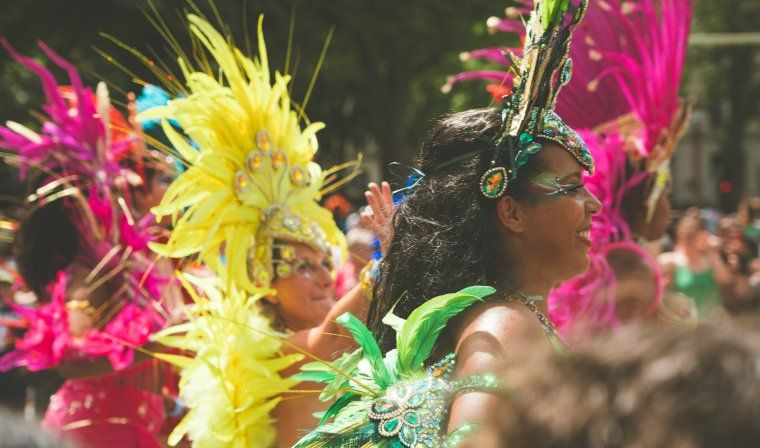
Another way to experience samba in Bahia is at the Teatro Miguel Santana, a cultural theater that celebrates Afro-Brazilian traditions with live performances. Here, you can enjoy live performances of samba de roda and Blue Parallel can even arrange exclusive backstage access.
Depending on the artist’s availability, it is also possible to partake in an exclusive, private drumming class with a local musician from Olodum, an internationally acclaimed samba-reggae Afro-Brazilian musical group from Bahia.
DOWNLOAD BAHIA JOURNEY PDF
Experience Capoeira In Bahia
Capoeira is celebrated across the state of Bahia as both an art form and a symbol of freedom. As you explore the region, you’ll notice the tradition pulsing through the streets as it’s being practiced in public squares, cultural centers, and academies.
Workshops or classes are on offer throughout the region, offering an enriching gateway to a deeper understanding and appreciation of the art form.
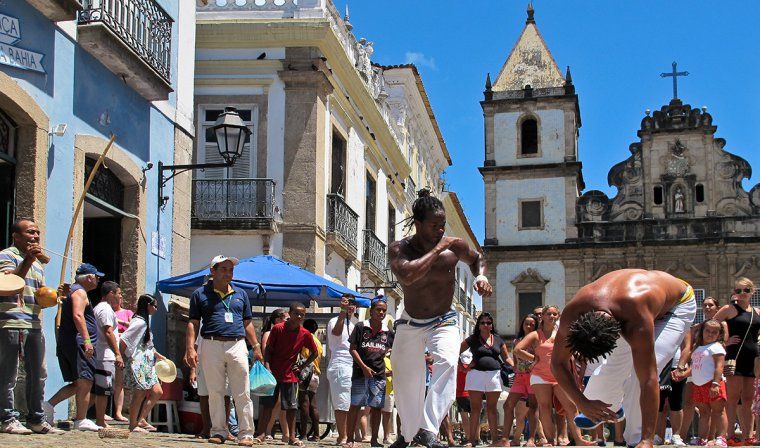
We recommend a private capoeira class with a local professional instructor before enjoying an authentic demonstration in the cultural center. Performance may also be shown at the Teatro Miguel Santana where we even organize exclusive backstage access.
Move To The Rhythm In Brazil
There’s no question that music and dance play a significant role in shaping both Brazilian and global culture. Witnessing traditions first hand and enjoying experiences that go beyond the ordinary opens the door to deeper connections with a country’s history and spirit.
For more information or to start planning your bespoke luxury tour of Brazil, contact one of our Travel Experts today.
